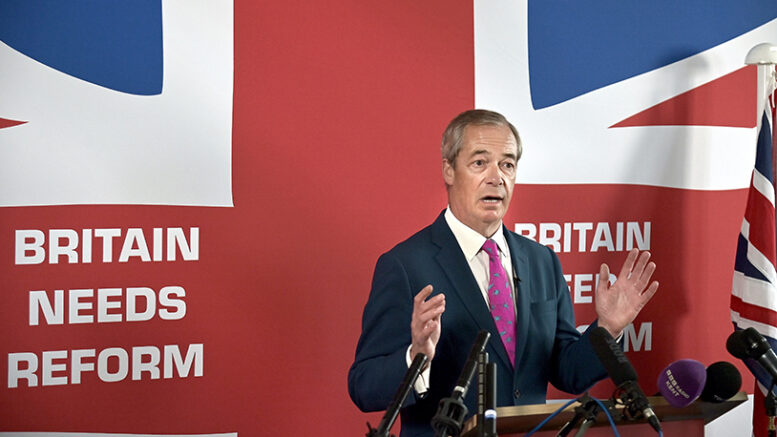Nigel Farage’s Reform UK has pledged to eliminate Stamp Duty for properties valued under £750,000 and to abolish Inheritance Tax on estates worth less than £2 million. Similarly, the Tories have proposed removing Stamp Duty for all first-time buyers on properties up to £465,000.
Rising attention for Reform UK’s policies
With Reform UK gaining traction in the polls, its proposed tax cuts are attracting significant attention. A YouGov poll for Sky News reported that Reform UK was just two points behind the Conservatives, putting Labour at 40%, the Tories at 19%, Reform UK at 17%, the Liberal Democrats at 10%, and the Greens at 7%.
Martin Lewis supports stamp duty cuts for downsizers
Consumer champion Martin Lewis has endorsed the idea of cutting Stamp Duty for downsizers, describing it as “a very, very clever plan” on his podcast. He believes this could free up much-needed houses for families. Currently, Stamp Duty is charged at 5% for properties valued between £250,001 and £925,000, starting at £425,000 for first-time buyers, and rising to 12% for properties over £1.5 million.
Political challenges and perspectives
Chancellor Jeremy Hunt has challenged Labour to match the Conservatives’ pledge not to increase Capital Gains Tax, Stamp Duty, or the number of council tax bands. He also revealed the Tories’ latest proposal to abolish Stamp Duty for first-time buyers. In response, Shadow Chancellor Rachel Reeves faces pressure to increase Capital Gains Tax to fund public services like the NHS, social care, and education. Shadow Defence Secretary John Healey has not ruled out the possibility of Labour raising property taxes.
Expert opinions on stamp duty reform
Nick Sanderson, CEO of Audley Group, criticised the focus on first-time buyers, stating, “Permanently cutting stamp duty for FTBs isn’t the innovative reform that is needed. And it serves as a reminder of policymakers’ blinkered focus on one end of that housing ladder. Which is wrong and disappointing.”
Sanderson advocates for stamp duty reform that stimulates movement at the top of the market to free up existing housing stock. He also emphasised the need for the prioritised delivery of age-specific properties: “A minimum of 50,000 new units are needed every year to keep up with the ever-rising demands of the ageing population, and incentivising their move also helps those lower down the ladder.”
A pivotal moment for housing policy
As the election approaches, both Reform UK and the Conservatives are proposing significant changes to stamp duty and property taxes. The new government, regardless of the party, has an opportunity to implement lasting changes to the UK housing system. As Sanderson notes, “The new government, whoever that might be, has a chance to make positive and lasting change to the UK housing system. Let’s hope they get that right come July.” For UK landlords and property investors, these potential reforms could bring both opportunities and challenges, making it crucial to stay informed and prepared for the evolving landscape.








